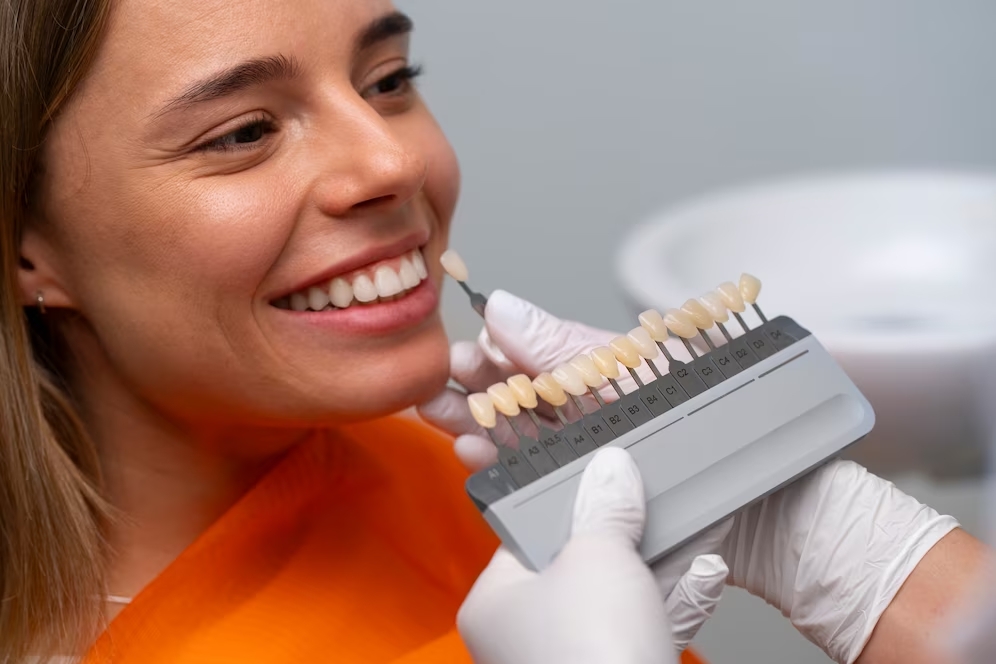
Porcelain Dental Veneers
- Length of Hospital Stay: Not Required
- Operation Time: 6-8 Hours
- Anesthesia: Local
- Recovery Time: Immediate
Porcelain Dental Veneers: An Aesthetic and Functional Solution
Porcelain dental veneers, used to protect dental health and improve aesthetic appearance, are an effective method applied by dentists to treat various dental problems. In this article, you can find important information about what porcelain dental veneers are, their advantages, process and maintenance.
What are Porcelain Dental Veneers?
Porcelain dental veneers are thin veneers placed on the front surface of the teeth and are usually produced from porcelain or composite materials. These veneers are used to correct aesthetic problems, protect teeth and achieve a natural smile.
Advantages of Porcelain Dental Veneers:
- Aesthetic look: Porcelain veneers provide an aesthetic appearance with their ability to reflect light similar to natural teeth.
- Durability: Porcelain veneers are resistant to breakage, cracking and wear, and they offer a long-lasting solution.
- Color Stability: There is no color change and it preserves the natural tooth color for a long time.
- Biocompatibility: Porcelain is a material that is compatible with the body and does not pose any risk of allergies.
- Light Transmittance: It transmits light like natural tooth enamel and provides a natural appearance.
Porcelain Tooth Veneer Process:
- Inspection and Planning: The dentist evaluates the patient's condition, creates the treatment plan and determines the color of the veneers.
- Preparation Phase: The front surface of the teeth is filed in accordance with the thickness of the porcelain veneers. An impression is taken from the tooth and temporary crowns are placed.
- Laboratory Preparation: The measurements taken by the dentist are sent to a dental laboratory. Expert technicians prepare special porcelain veneers.
- Placement: After preparation, porcelain veneers are placed on the patient's teeth by the dentist. Color and fit are checked.
- Correction and Pasting: If necessary, corrections are made and veneers are permanently placed on the teeth with special adhesives.
Care After Porcelain Dental Veneers:
- Oral Hygiene: Care should be taken to the teeth and gum area around the veneers, and regular tooth brushing and flossing should be continued.
- Regular Checks: It is important to visit the dentist for check-ups at regular intervals to monitor the condition of the veneers and perform maintenance if necessary.
- Teeth Clenching and Grinding: If there is a habit of clenching or grinding teeth, appropriate precautions should be taken by consulting a dentist.
- Avoiding Hard Foods: For the veneers to last long, hard and hot foods should be avoided.
- Mouth Protector Usage: When playing sports, wearing a mouth guard can help protect the coverings.
Disadvantages and Things to Consider:
- It should be noted that porcelain veneers are irreversible. Once damaged, they usually cannot be repaired.
- Tooth sensitivity may occur; but this is usually a temporary situation.
- It is not guaranteed that the veneers will be fully compatible with natural teeth, but dentists who are experts in color selection and compatibility manage this process.
Porcelain dental veneers offer a reliable option to solve dental problems with their aesthetic and functional advantages. However, individual cases vary, so it is important to consult a dentist to determine the most appropriate treatment plan.
Top of Form
